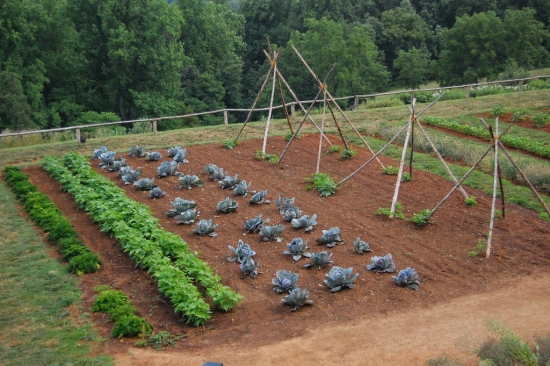Upmarket supermarket Waitrose is set to sell wonky carrots and knobbly potatoes grown in local schools under a new nationwide scheme supported by gardener Alan Titchmarsh. The supermarket’s new ‘grow and sell’ campaign aims to encourage 7 to 11 year-olds across the UK by helping them grow and sell their own food.

Every Waitrose store in the UK will work with four local primary schools who will each be given a seed kit. The kit is aimed to get school vegetable patches up and running, and includes equipment, seeds and step-by-step growing instructions. Later in the summer, the stores will invite the schools to sell their home-grown fruit and vegetable outside the store.
Schools will also be able to receive extra seed kits through the in-store Waitrose community matters scheme, where customers can support a local charity by placing a green token into the relevant perspex box. It is expected that the scheme, run in association with the Waitrose farm on the Leckford Estate, will reach over 100,000 children.om closure
The national roll-out follows a successful trial last year when 20 primary and secondary schools across London worked with 10 Waitrose stores together with the School Food Matters charity to sell vegetables, fruit, eggs, chutneys and jams.
TV presenter Alan Titchmarsh was recently appointed by Waitrose to help boost the profile of British agriculture and horticulture. The supermarket is branching out into the gardening market with the introduction of 6,000 products to help customers produce their own flowers, fruit and vegetables.
Titchmarsh added: “Teaching children at an early age about the food they eat and where it comes from is something that I’m very passionate about – we’ve all read shocking statistics about how many nowadays do not know what chips are made from or that a blackberry is a type of fruit and not just a phone”.
Sustainability and ethical sourcing manager at Waitrose, Tina Varns added: “We are really pleased to be rolling this initiative out to all 290 of our branches. Growing at school encourages children to eat well and to go for a wider variety in their food – we believe this is very important as it paves the way for healthy eating.”
Varns said the scheme also allows children to pinpoint where food comes from, the significance of seasonality and the impact of bad weather, as well as developing an entrepreneurial attitude.
The previous government launched a sustainable schools standard to reflect the importance of sustainability in the curriculum and in schools’ own practice but this was not officially implemented by the coalition government.
A major review of the curriculum is currently in motion, sparking speculation about how climate change and sustainability will be taught in the future. However it emerged in March that specific mention of “climate change” has been removed from the draft geography curriculum in England up to and including key stage 3.
Previous Post
Oxfam Offers Nectar Points for Charity Donations